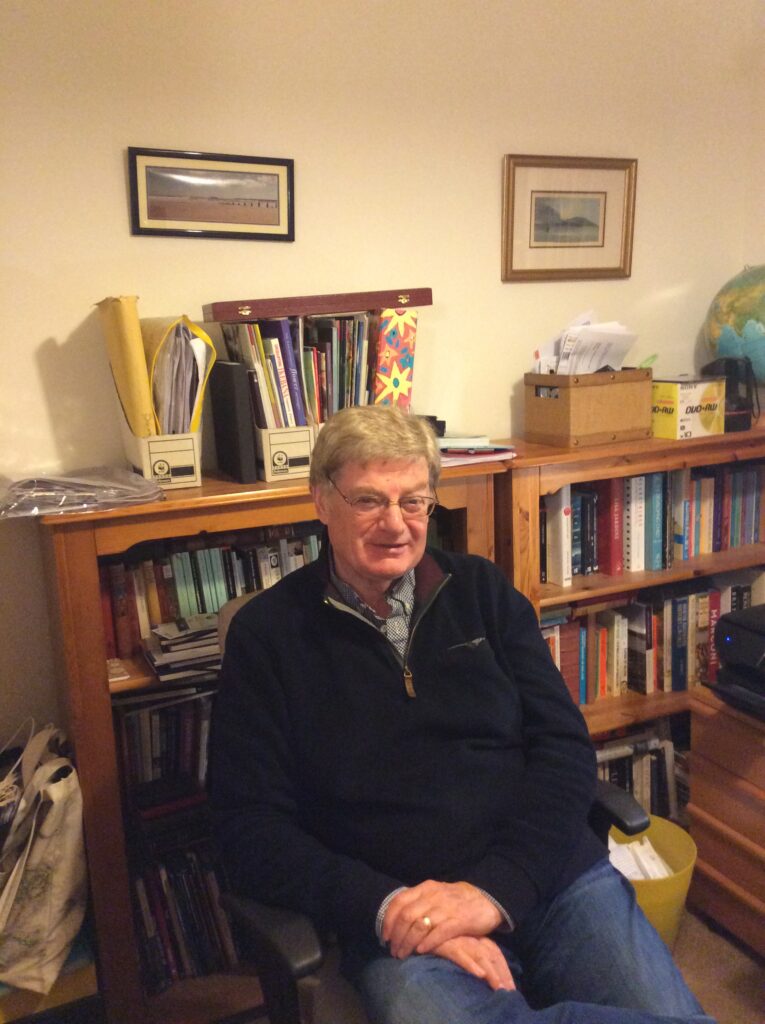4 April 2024
When I Get Older….
By Paul Branch

There’s not a lot to be said for getting old. Try as I might, the promised benefits and enjoyments of advancing years don’t seem quite so attractive now that Old Age has actually happened. Freedom from worry was one happy circumstance to look forward to, but it turns out that’s not quite so … the worries are still there; it’s just that some of the subjects of concern change. Having to get up to go to work at ungodly hours is no longer a prevalent irritant, but in its place is the worry that the physical exertion of raising those stiff limbs up and out of the sheets and over the side of the bed may soon no longer be possible. Then there’s the children – we worry about them as they develop and grow; we worry still when they are in full middle-aged flow. And to make things worse the grandchildren start to arrive and the worry cycle starts all over again.
Financial worries are said to be non-applicable to old folk like me, the blessed generation of Baby Boomers. We have our mortgage-free homes, the wondrous triple lock that keeps our state pension increasing in line with the worst case inflation data, and no worries about paying for prescriptions to keep us well-stocked with stay-alive medication. No wonder there are said to be feelings of rancour among the young – you’re blocking our access to housing by refusing to move out of your oversized houses; we can’t afford the taxes that fuel your bloated pensions; and we can’t afford to pay for your free medicines either. Some would have had us culled during the Covid pandemic by doing without lockdowns and letting the epidemic rip. No thought apparently that people like us have real positive value in society, emotionally and socially, not just economically.
There’s not a lot of fun either in getting old, apart from the mere retention of the status of being alive. The realisation that physically things have changed, albeit gradually, still comes as a surprise if not a shock, despite the fact that others have been ageing just as we have, and often we will have seen what happens to our own parents and wider family. Advances in medicine have obviously been wondrous and supremely beneficial, but there remain fears as to what else might go wrong as time progresses, physically and mentally. We can probably learn to cope with the impacts of reducing visual and aural acuity, the loss of hair and teeth, but the failure of the mind is another matter. And the first indication is sometimes the dreaded overheard whispered observations between loved ones, along the lines “Oh no! …. he’s come out in his slippers again!” When the memory starts to fail to respond as we (or others) would expect, we start to worry. No doubt each of us in that condition has their own examples: the frantic search for glasses that remain perched undetected on your forehead; the inevitable self-questioning “Now why did I come all this way up the stairs …?”; the assiduous compilation of lists to combat memory failure, often accompanied by an exasperated “Have you seen my list anywhere?”.
The spectacle unfolding in the run up to the US presidential election gives further insight into this phenomenon. Two old gentlemen, one coming up to 78 years old in June and the other approaching 82 in November, will slug it out for the biggest and perhaps toughest job in the world. We are therefore right to question their suitability to even apply for the job on grounds other than previous experience, let alone see out the four years of tenure. Medical checks on both candidates are said to be satisfactory, so it’s their mental capacity that’s being looked at in some detail, and in particular their ability to remember just what exactly has been going on around them. Neither of them scores well on this aspect of mental alertness. Joe Biden has been forgiven for retaining classified documents from his VP days on the basis of absentmindedness typical for his age, while his ability to confuse countries and politicians’ names is put down to the occasional memory lapse not uncommon in old men. The same goes for forgetting when he served as Vice President and his son’s birth date. Donald Trump now has a habit of mixing up Barack Obama and Joe Biden, and can’t quite remember that his wife’s name is Melania rather than Mercedes. Based on these incidents, a recent poll conducted by the New York Times showed 42% of those interviewed thought Trump too old to be an effective president, whereas a whopping 73% said that of Biden. So, should we be worried ….?
Luckily forgetfulness in advancing years appears not to be a particular concern according to the general medical fraternity. Memory relies on the brain learning an event or a fact, keeping it safe, and recovering it on demand when needed. An error in any part of this process results in forgetting the topic in question, although sadly there’s no error message to prevent the mouth delivering a wrong answer. Added to which the brain has only a finite capacity to process all this sensory information in real time, so it relies on our attention to filter out what’s important enough to be processed. This results in encoding mainly the stuff we are paying attention to when it arrives. For example, when my wife starts telling me who she met on her morning walk while I’m fully focused on trying to ignite reluctant logs on the fire, the chances are I will have heard what she said but failed to encode that vital piece of information ie, her answer. That of course will come back to bite me later in the day, when we’re sitting around the blazing log fire sipping our afternoon tea and I ask innocently if she met anyone on her earlier walk. Despite getting berated for my forgetfulness, I was however able to complete the previous task at hand and successfully light my fire.
Another important element for retaining memory is rehearsal, as in “use it or lose it”. Lasting memories are those relating to things we’ve spoken about many times before, and it’s common to adapt the memory with every retelling, perhaps with the addition of an embellishment or two, and to probably remember the last rehearsal rather than the actual event itself. But the gist of the event is still there, waiting to be trundled out at the next opportunity.
The longer we live, the more experiences we have and so the more there is to remember. Forgetfulness is common and becomes more apparent with age, but critically forgetting names or dates doesn’t necessarily flash warning signals of impaired decision-making. And on the positive side, our knowledge and experience deepens as we get older, our intuition also improves, and all of these help counteract memory lapses.
So to the general relief of the Free World it’s unlikely that forgetfulness will be a major problem for the next President of the USA. It would be nice at this point to sign off with a rousing rendition of John Lennon’s “When I’m Sixty-Five”, or indeed Bing Crosby’s “Thanks for the Memory”, but sadly I seem to have forgotten the tune for one and can’t quite remember the words for the other. Such is life these days.
tile photo: by Sava Bobov on Unsplash


